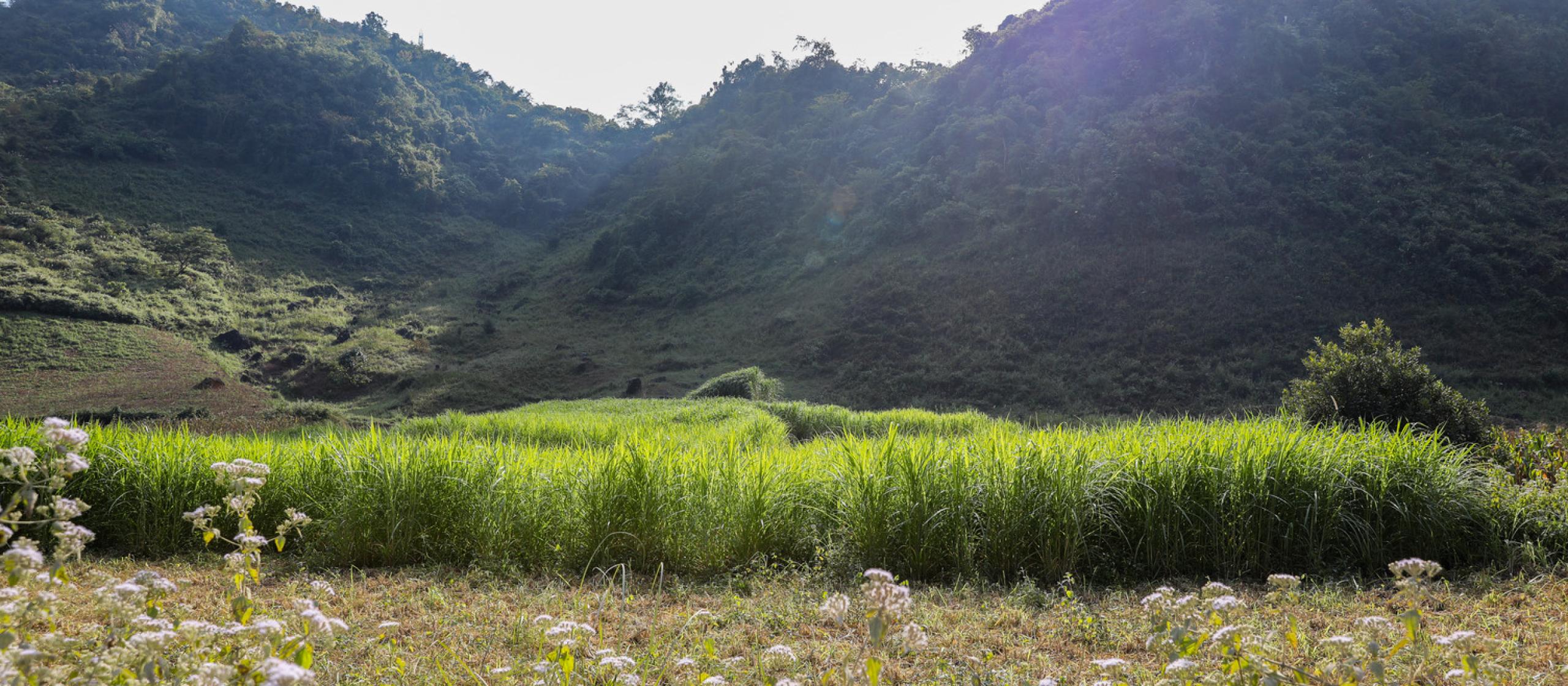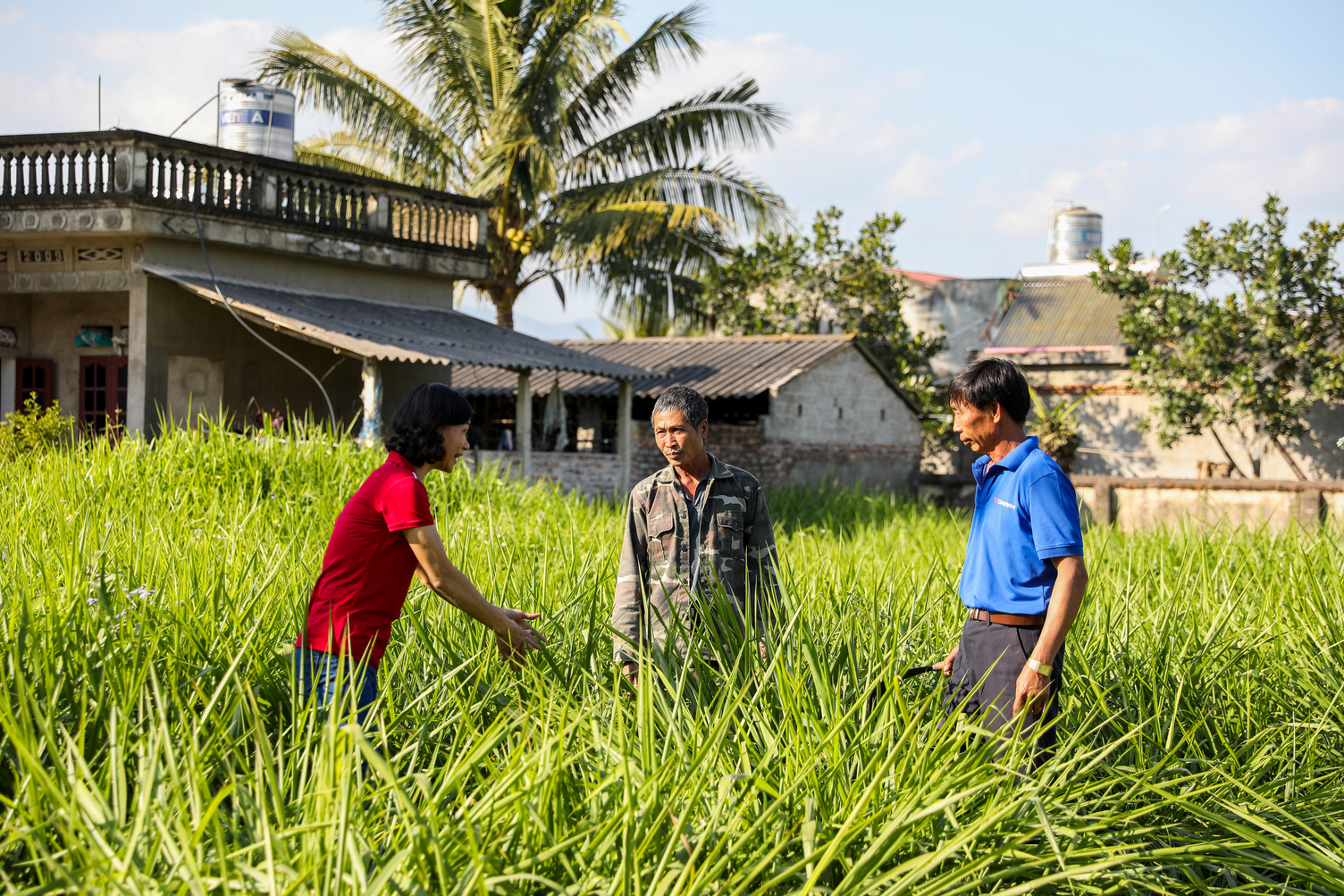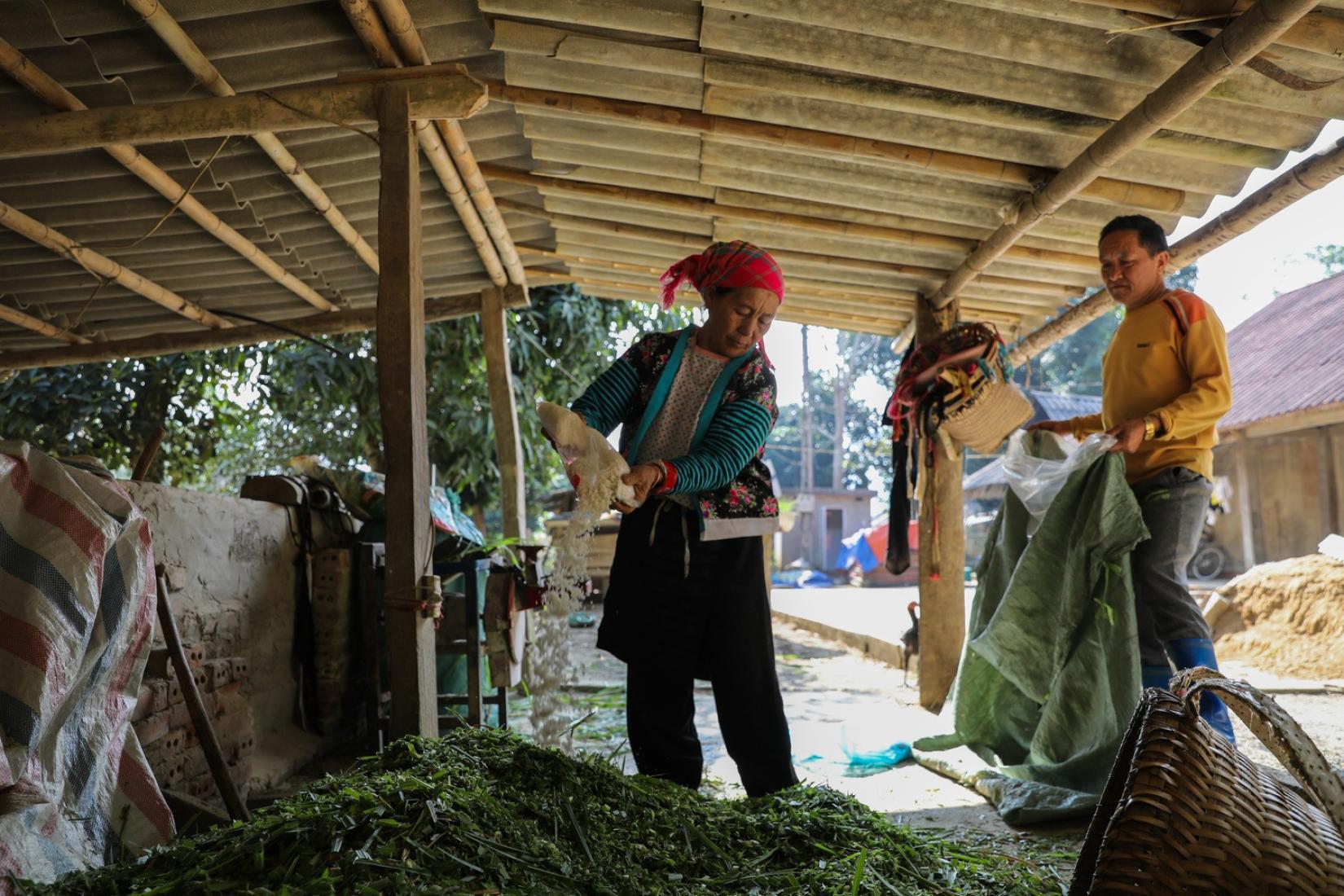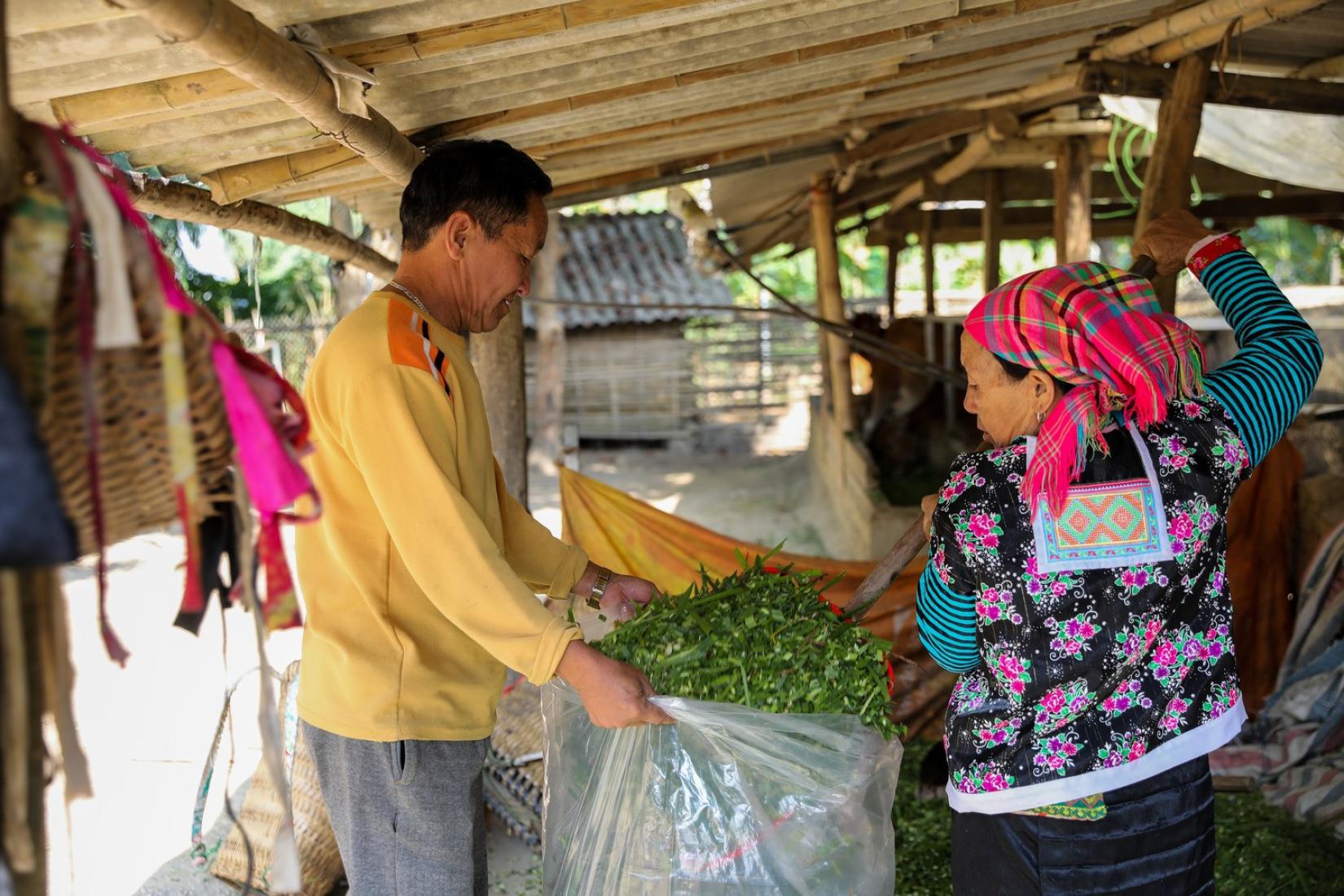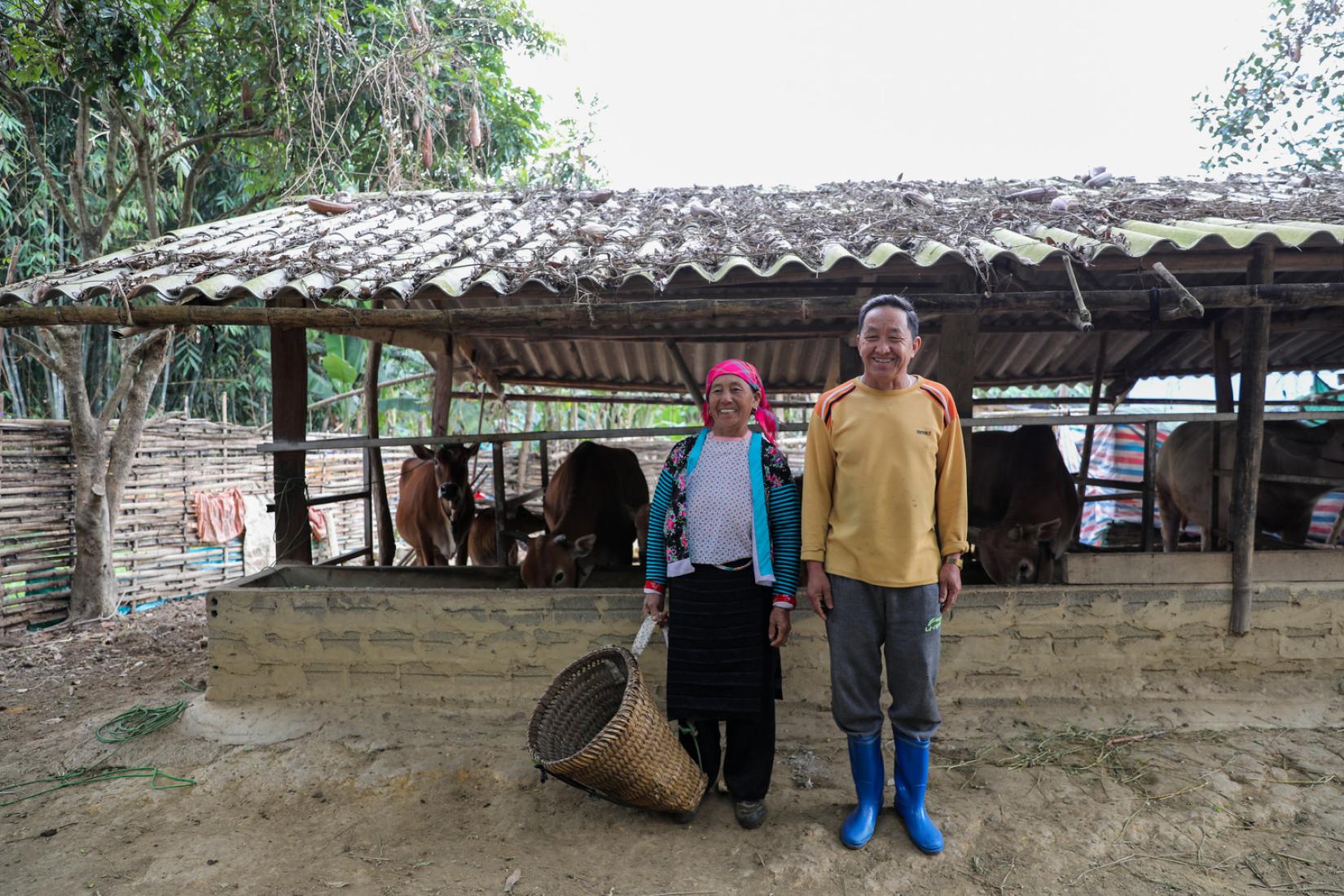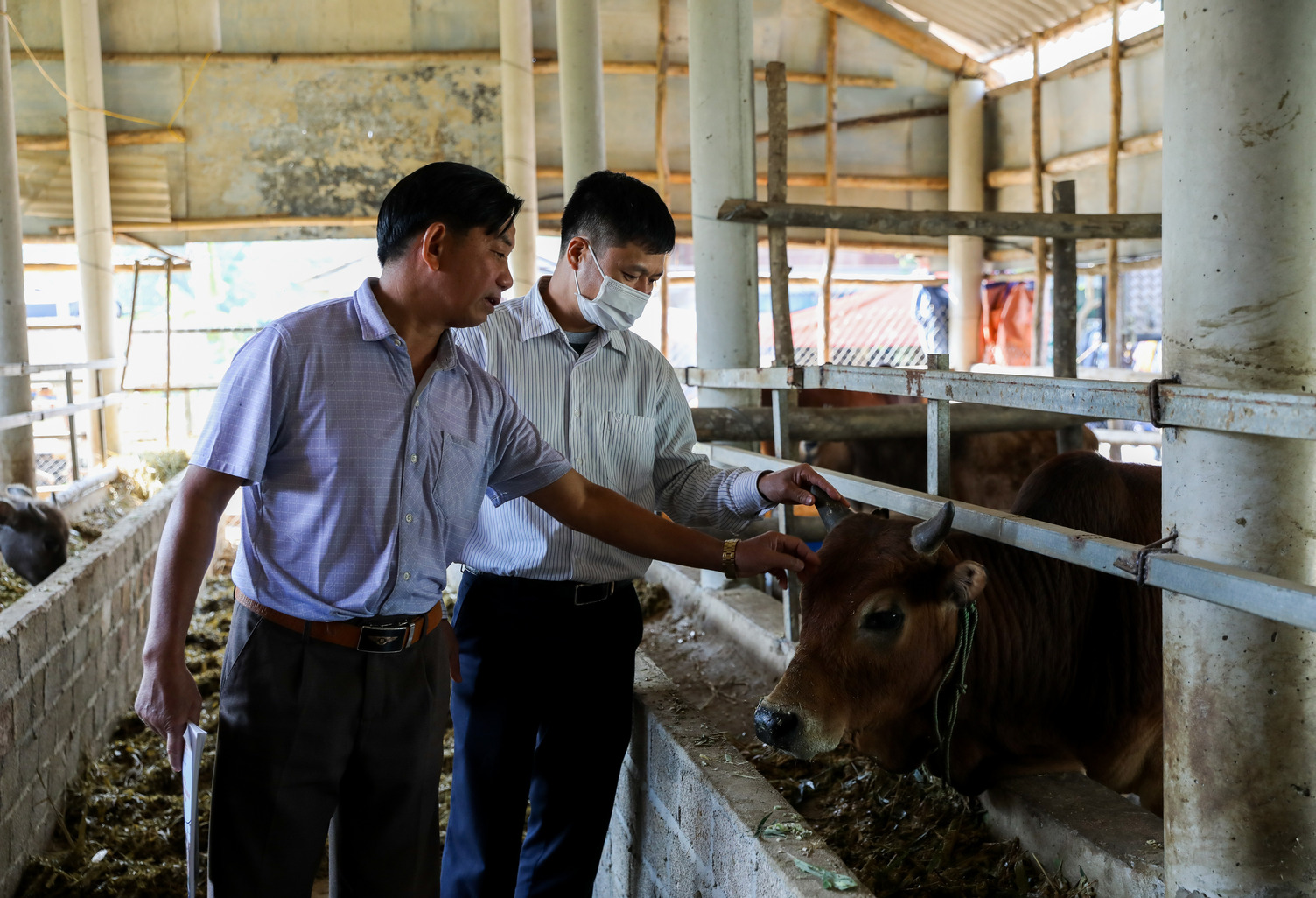However, the grazing-based system has been in strong competition for land with the expanding crop production, such as maize and cassava. Furthermore, free-graze herds are also highly vulnerable to long cold winters, diseases, and fatal falls from steep slopes that dominate the region.
In addition to being heavily dependent on a reducing natural feed source, local livestock production is limited in its marketability. Instead of selling the animals at the optimal age for market price and production cost, farmers usually keep their cattle as savings accounts for family events, children’s education, or unexpected financial crises. These traditional practices, coupled with poor linkages to urban markets, and limited information exchange on market demands and other opportunities along the beef cattle value chain, have denied smallholder farmers of real financial benefits, despite the growing domestic demand for beef.
An ACIAR-funded project led by the University of Tasmania since 2015 has been looking to improve livestock production in the region by increasing the farming system efficiency and building linkages to urban beef markets.
‘Improved efficiencies in beef cattle farming can help increase farmers’ income, which can then be used for other benefits such as school fees, healthcare costs or re-investment back into their farming enterprises. In this way, the project can help bring multiple benefits to the whole region,’ said Dr Anna Okello, Research Program Manager for Livestock Systems at ACIAR.
To develop more efficient and market-oriented beef cattle production, the project’s first mission was to understand the social, economic, and policy context to build practical interventions.
‘We spent four years of intensive research into the local farmers’ livelihood assets, their ability to cope with economic shocks, their production and marketing strategies, and institutional processes affecting their livelihood. We want to design practical farming systems that will benefit smallholder farmers in the end,’ said ACIAR project leader Dr Stephen Ives from the University of Tasmania.
